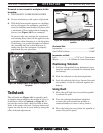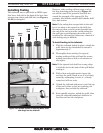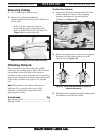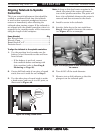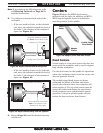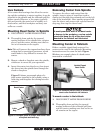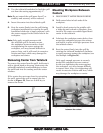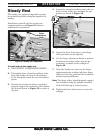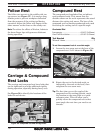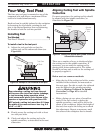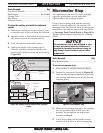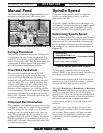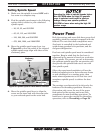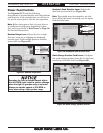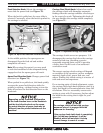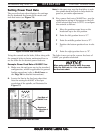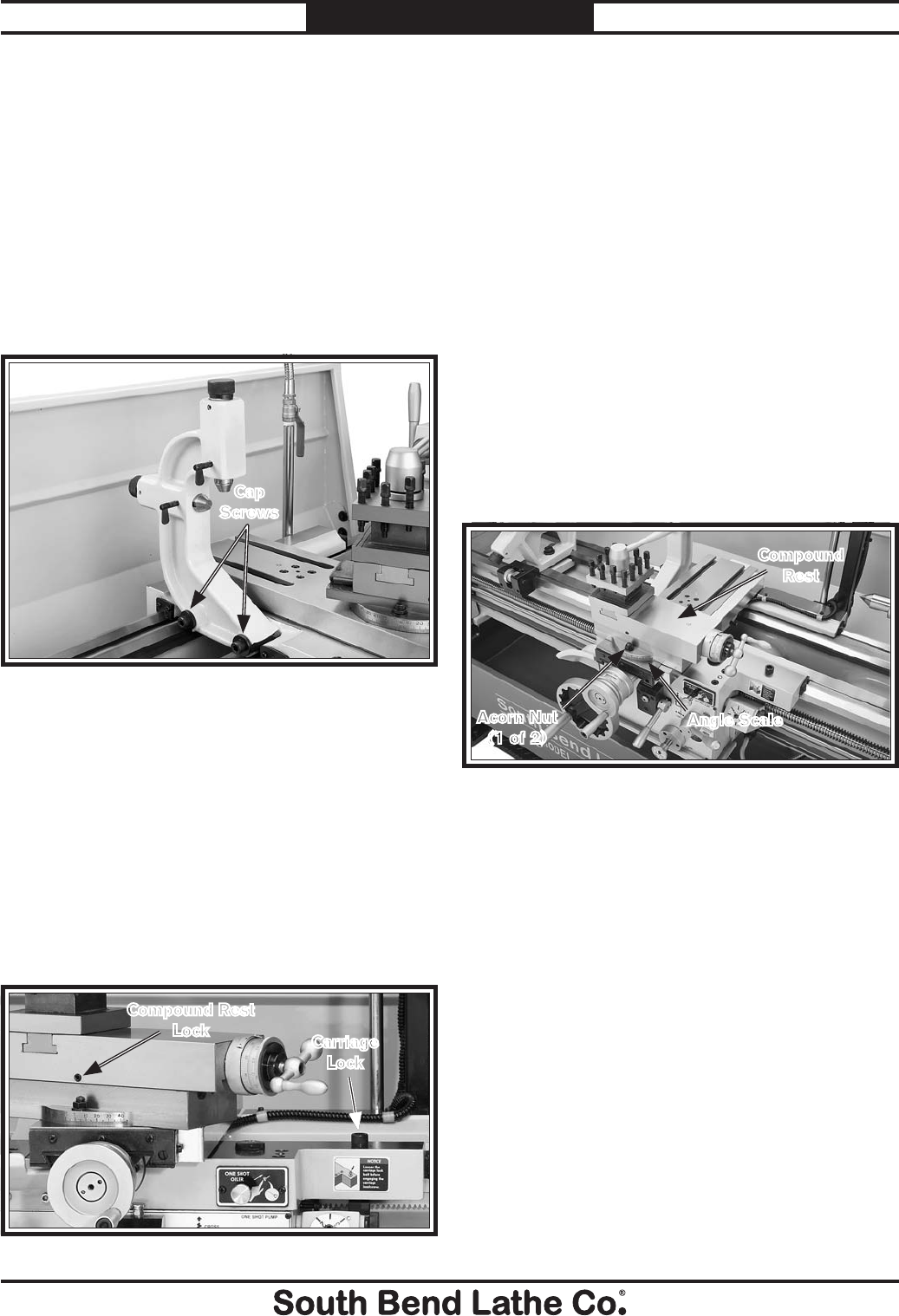
-50-
For Machines Mfg. Since 3/11
Turn-Nado
®
Gearhead Lathes
OPERATION
Follow Rest
The follow rest mounts to the saddle with two
cap screws (see Figure 57). It is used on long,
slender parts to prevent workpiece deflection
from the pressure of the cutting tool during
operation. Adjust the follow rest fingers in the
same manner as the those on the steady rest.
Note: To reduce the effects of friction, lubricate
the brass finger tips with generous lubricant
during operation.
Figure 57. Follow rest attachment.
Cap
Screws
Carriage & Compound
Rest Locks
The carriage and compound rest have locks that
can be tightened to provide additional rigidity
during operation, especially during heavy cuts.
See Figure 58 to identify the locations of the
locks for each device.
Carriage
Lock
Compound Rest
Lock
Figure 58. Compound rest and carriage locks.
2. Rotate the rest to the desired angle, as
indicated by the scale at the base, then
retighten the two acorn nuts.
Tip: The first time you set the angle of the
compound rest for cutting threads, mark
the location on the cross slide as a quick
reference point. This will allow you to
quickly return the compound rest to that
exact angle the next time you need to cut
threads.
The compound rest handwheel has an indirect-
read graduated scale. This means that the
distance shown on the scale represents the actual
distance the cutting tool moves. The base of the
compound rest has another graduated scale used
for setting the cutting tool to a specific angle.
Graduated Dial
Increments ....................................0.001" (0.02mm)
One Full Revolution .....................0.100" (2.54mm)
Tool Needed Qty
Wrench 14mm .......................................................1
To set the compound rest at a certain angle:
1. Loosen the two acorn nuts at the base of the
compound rest (1 of 2 shown in Figure 59).
Compound Rest
Figure 59. Compound rest.
Compound
Rest
Angle Scale
Acorn Nut
(1 of 2)



